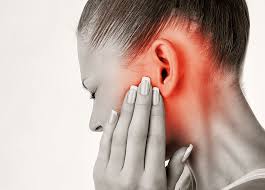Do you have a strong heart?
Eight out of ten men and women in a 2015 research that was published in JAMA had scarring on their cardiac muscle as a result of a previous heart attack but were unaware that their hearts had been in danger. Silent myocardial infarction is the term used to describe this type of heart condition (SMI). People may miss SMIs because they ignore what their hearts are trying to tell them. Here's how to decipher your heart's signals and determine if it's healthy or not.
Contents:-
1:- You wore out when engaging in any physical activity.
2:- Having issues with sex in the bedroom
3:- High Blood Pressure
4:- A sudden persistent cough
5:- Breathing issues while you're asleep
6:- Hair loss on your legs
7:- Feet and legs are swollen
8:- Neck or jaw pain
9:- Shortness of Breath.
You wore out when engaging in any physical activity.
If you typically run a few kilometers every day without difficulty but then find yourself suddenly exhausted and feeling like you have the flu, it may be an indication that your normally healthy heart is not pumping enough blood throughout your body. A warning sign that something is awry, according to Erin Michos, MD, associate professor of medicine and director of preventive cardiology at the Johns Hopkins School of Medicine, is when once-easy activities become suddenly more difficult. Make a quick appointment with your doctor if getting a decent night's sleep doesn't help your severe fatigue.
Having issues with sex in the bedroom
Erectile dysfunction is one of the traditional indicators of heart disease. Stress, despair, and anxiety can all prevent you from being intimate with your partner. However, clogged arteries, which impair healthy blood flow to your penis, may also be to blame for your problems in the bedroom.

The most prevalent form of erectile dysfunction is vascular, which is frequently brought on by endothelial dysfunction and atherosclerosis. Heart attacks and strokes are brought on by atherosclerosis, which causes the arteries to stiffen and narrow. Your blood vessels cannot relax adequately due to endothelial dysfunction, which reduces blood flow throughout your body. According to Dr. Michos, the symptoms of erectile dysfunction frequently start at least two years before the signs of heart disease. The ability to intervene and halt the progression of heart illness is provided by the early identification of erectile dysfunction. See your doctor for frequent check-ups to keep healthy. Diabetes, obesity, high blood pressure, high cholesterol, and a lack of exercise are all risk factors for heart disease.
High Blood Pressure
Normal blood pressure sets the stage for a healthy heart. Your chance of having a heart attack, stroke, or developing heart disease may rise if you are diagnosed with high blood pressure. If you don't reduce those numbers, it could harm your arteries and eventually lead to plaque accumulating on the arterial walls, which gradually reduces blood flow. Your heart and blood vessels must work harder and less effectively when your blood is pounding against your blood v People assume they will know they have high blood pressure, but Lawrence Phillips, MD, an assistant professor in the department of medicine and the director of the nuclear cardiology laboratory at NYU Lang one Medical Center in New York City, explains that this is frequently not the case. I will suggest everyone to test their blood pressure tested because one it can cause danger in high blood pressure,"essels at a fast rate all the time
A sudden persistent cough
Frequent coughing fits can be a symptom of heart disease even if they may just be another unpleasant cold. According to Dr. Michos, wheezing and coughing caused by congestive heart failure can occasionally mimic asthma or lung illness while actually being a cardiac problem. When your heart isn't pumping blood effectively, your blood vessels back up and fluid leaks into unexpected locations, like your lungs, where it begins to build. Chronic obstructive pulmonary disease, a catch-all phrase for progressive lung illnesses that make it difficult to breathe, may also be caused by an unhealthy heart.
Breathing issues while you're asleep
People with obstructive sleep apnea frequently snore and intermittently stop breathing while they sleep. An increased incidence of heart attacks or atrial fibrillation, a kind of heart arrhythmia, has been associated with this sleep disorder. In order to boost oxygen supply to the heart and brain, persons with sleep apnea’s bodies worry when their oxygen levels fall during sleep and tell blood vessels to constrict, which impairs breathing.
According to Suzanne Stein Baum, DO, an attending cardiologist and the director of Women's Cardiovascular Prevention, Health, and Wellness at The Mount Sinai Hospital in New York City, you should always keep your heart in mind. "See a doctor and get checked out. Check your blood pressure. Get your blood tested, and in some cases, a stress test, as well. High blood pressure is a risk factor for sleep apnea patients and is an unfavorable cardiac symptom.
Hair loss on your legs
If your arteries are restricted, which lowers your blood flow, it could indicate that you lack oxygen in your legs since you have hairless legs. Your hair follicles are dependent on that nutrient-rich blood to flourish. According to Dr. Michos, peripheral arterial disease (PAD) can cause hair loss or slowly growing hair on the legs. Visit your doctor to receive a proper diagnosis for your hair loss so that you can remain healthy.
Feet and legs are swollen
One indication that your heart isn't healthy could be that you have problems getting your feet into your shoes or that your socks are a little snug. Your feet, legs, abdomen, and even your scrotum may expand when your heart isn't pumping blood effectively because clogged veins force extra fluid into your body tissues. Try pressing on your skin if you experience unusual swelling in certain areas. If it leaves a dimple-like pitted indent in your skin, this indicates that your tissues are retaining too much fluid, and you should visit a doctor.
Neck or jaw pain
The reality is that heart symptoms can appear in various places of the body, contrary to the common belief that chest pain is the first indicator of heart disease. According to Dr. Michos, women are more prone than males to experience these "atypical symptoms," which frequently cause heart pain to go undiagnosed and untreated. "It's vital to understand that chest pain is not always an indication of a healthy heart. Women may experience nausea and exhaustion as heart attack symptoms, to mention a few. Angina, an underlying cardiac condition that develops when your heart lacks oxygen-rich blood, can also manifest as neck or jaw pain. Angina can cause a tightening or squeezing sensation in your chest, but it can also spread to your neck, jaw, back, or shoulders.

Shortness of breath
Running or climbing stairs and experiencing unusual exhaustion are usually symptoms that your heart isn't functioning properly. The most important thing I advise patients to do initially, according to Dr. Phillips, is to become aware of their own danger in their body. "They should be aware of what is typical for them so they can recognize when anything is out of the ordinary." Ask your doctor to perform a complete health assessment. It is vital to take charge of your heart health right away and educate yourself on how to lower your chance of suffering a cardiac arrest in the future.
Thank You.


You must be logged in to post a comment.